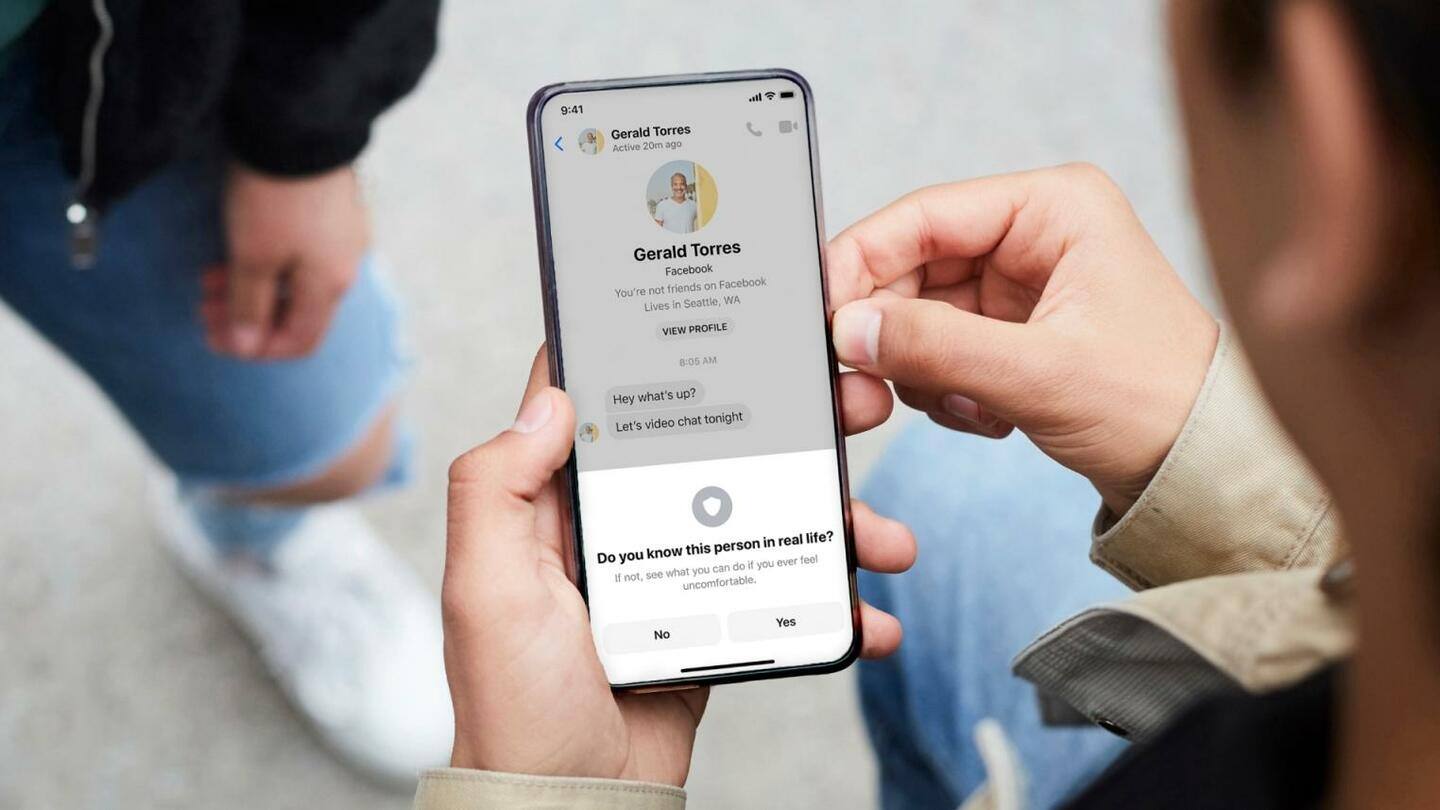
Meta tightens privacy settings for teens on Instagram and Facebook
What's the story
Meta has announced a new set of privacy updates on Facebook and Instagram aimed at teens.
The most notable change is that everyone under 16, or under 18 in some countries, will be placed under more privacy settings by default when they join Facebook.
The updates are in line with the company's safety-by-design and 'Best Interests of the Child' framework
Context
Why does this story matter?
Meta has been taking a lot of steps to tighten the privacy settings for its underage users. Throughout the year, the company has brought updates to improve the supervision of teens on its platforms.
The new privacy updates will further enhance what it has been doing. These updates will help reduce the adverse impacts of social media on the younger generation.
Suspicious adults
Suspicious adults won't appear in teens' recommendations
Meta is testing ways to protect teens from suspicious adults on Facebook and Instagram. Teens won't be able to message suspicious adults they aren't connected to, and such adults won't appear in teens' recommended lists.
The company has added an extra layer of protection for teens on Instagram. If a suspicious adult views their profile, the company is testing removing the message button altogether.
Information
Who are suspicious adults?
A "suspicious" account is one that has been blocked or reported by a young person. Meta stopped teens from appearing in the 'People You May Know' recommendations of suspicious accounts last year. Suspicious adults are also restricted from messaging teens they are not connected to.
Teens already on the platform can choose more private settings
Apart from placing newly joined teens under default privacy settings on Facebook, Meta has also recommended teens already on the platform opt for the new privacy settings.
They can choose more private settings for who can see their friends list, the people, pages, and lists they follow, the posts they are tagged in, and who can comment on their public posts.
Intimate photos
Meta is working on a platform to stop teens' 'sextortion'
Meta has also taken steps to prevent the spread of teens' intimate photos online. These images are sometimes used to exploit or "sextort" them.
It is working with the Virginia-based National Center for Missing and Exploited Children (NCMEC) to build a global platform to help teens who are worried that their intimate images will be shared online without their consent.
Platform
Other tech companies can use the platform once it's active
The new platform Meta is working on is similar to its current system designed to prevent the nonconsensual sharing of intimate images of adults. It's called StopNCII.org.
The goal of the platform is to help Meta prevent teens' intimate images are posted online. Once it is active, other tech companies will be able to use it as well.
Information
The company is also working on developing educational materials
To reduce the shame and stigma surrounding intimate images, Meta is also working on creating educational materials by partnering with Thorn and their NoFiltr brand. The materials will aim to empower teens and help them regain control "if they have shared them online."